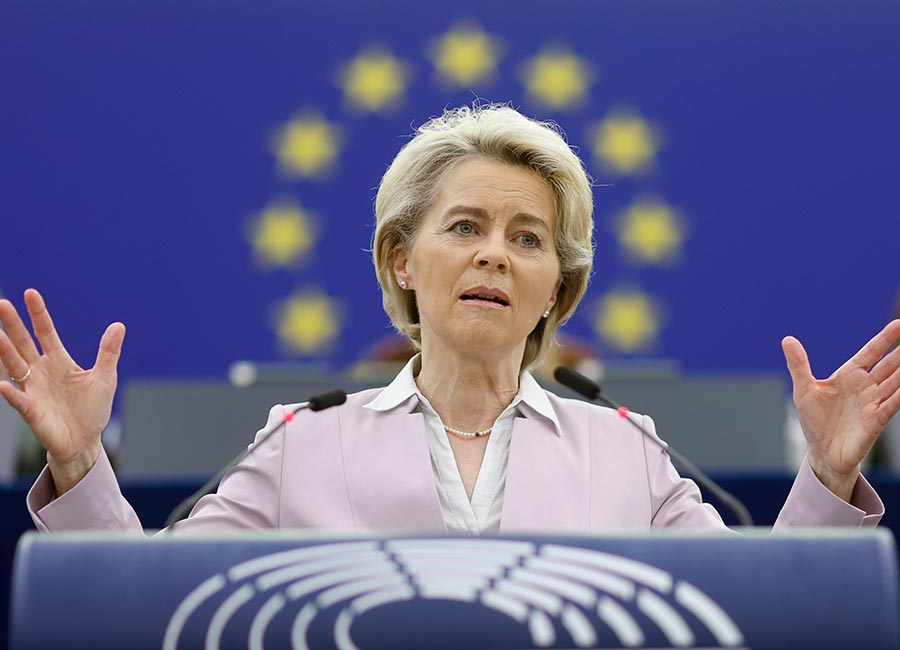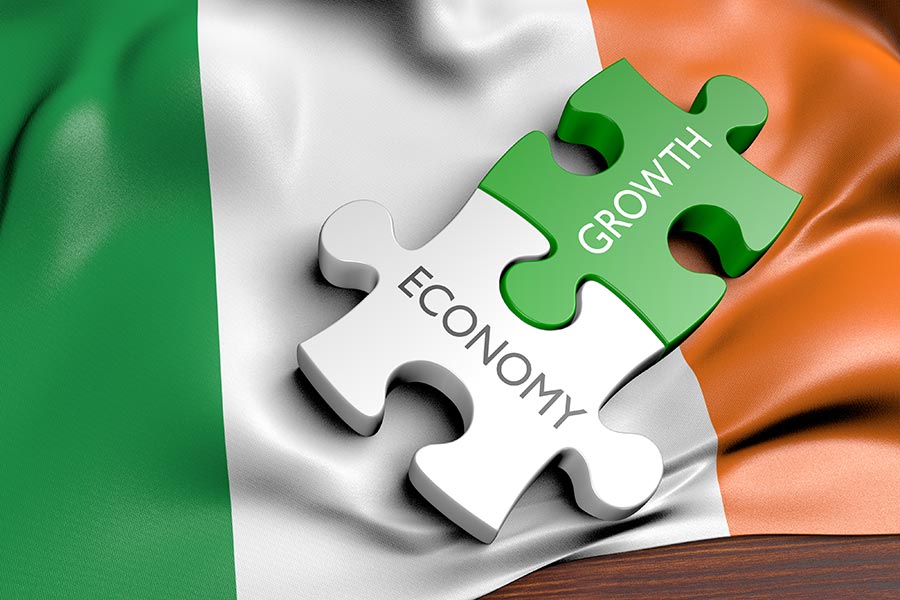The European Union will impose counter tariffs on €26bn ($28bn) worth of US goods from next month.
The move is seen as a direct response to blanket US tariffs on steel and aluminium.
US President Donald Trump's increased tariffs of 25% on all steel and aluminium imports have taken effect as prior exemptions, duty free quotas and product exclusions expired.
The European Commission said it will end the current suspension of tariffs on US products on 1 April and will also put forward a new package of countermeasures on US goods by mid-April.
The suspended tariffs apply to products ranging from boats to bourbon to motorbikes, and the EU said it would now start a two-week consultation to pick other product categories.
The new measures will target around €18bn in goods, with the overall objective to ensure that the total value of the EU measures corresponds to the increased value of trade impacted by the new US tariffs, the EU said.
The proposed target products include industrial and agricultural products, such as steel and aluminium, textiles, home appliances, plastics, poultry, beef, eggs, dairy, sugar and vegetables.
"Our countermeasures will be introduced in two steps. Starting with 1 April and fully in place as of 13 April," European Commission President Ursula von der Leyen said in a statement.
"We are ready to engage in meaningful dialogue. I have entrusted Trade Commissioner Maroš Šefčovič to resume his talks to explore better solutions with the US," she added.
Mr Trump's action to bulk up protections for US steel and aluminium producers restores effective global tariffs of 25% on all imports of the metals and extends the duties to hundreds of downstream products made from the metals, from nuts and bolts to bulldozer blades and cans.
The run-up to the tariff deadline came with some drama as Mr Trump threatened Canada with doubling the duty to 50% on its steel and aluminium exports to the US.
But Mr Trump backed off those plans after Ontario Premier Doug Ford agreed to suspend his province's decision to impose a 25% surcharge on electricity exports to the states of Minnesota, Michigan and New York until earlier US tariffs were removed.
Mr Ford said he would fly to Washington tomorrow with Canadian Finance Minister Dominic LeBlanc for talks with Commerce Secretary Howard Lutnick and other Mr Trump officials to discuss revising the US-Mexico-Canada Agreement on trade.
The incident whipsawed US financial markets already jittery over Mr Trump's broad tariff offensive but left unchanged Mr Trump's original plans to strengthen the Section 232 national security tariffs on steel and aluminium imposed in 2018 during his first term.
A White House spokesperson described the US pressure on Canada as a "win" for the American people.
The US Customs and Border Protection agency cut off imports qualifying for duty-free entry under quota arrangements well before the midnight deadline, saying in a bulletin to shippers that quota paperwork needed to be processed by 4.30pm local time yesterday at US ports of entry or the full tariffs would be charged.
The move was welcomed by US steel producers as restoring Mr Trump's original 2018 metals tariffs that had been weakened by numerous country exclusions and quotas and thousands of product-specific exclusions.
"By closing loopholes in the tariff that have been exploited for years, President Trump will again supercharge a steel industry that stands ready to rebuild America," Steel Manufacturers Association President Philip Bell said in a statement.

"The revised tariff will ensure that steelmakers in America can continue to create new high-paying jobs and make greater investments knowing that they will not be undercut by unfair trade practices," Mr Bell added.
The countries most affected by the tariffs are Canada - the biggest foreign supplier of steel and aluminium to the US-Brazil, Mexico and South Korea, which all have enjoyed some level of exemptions or quotas.
Pics: AP Photo/Jean-Francois Badias










